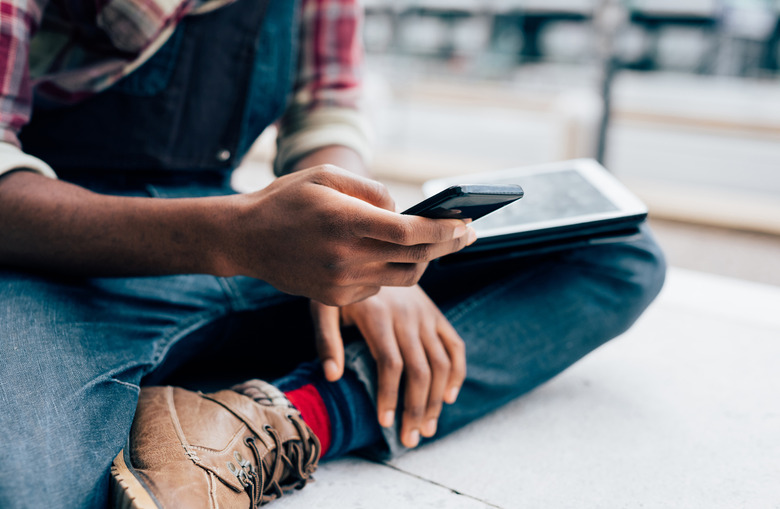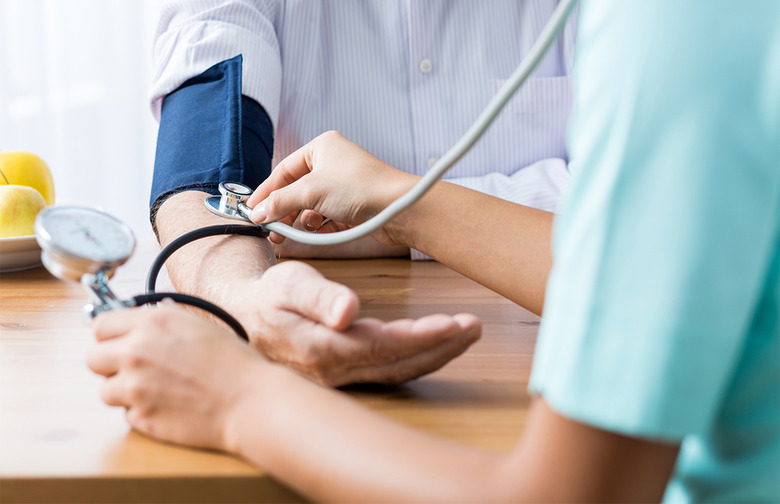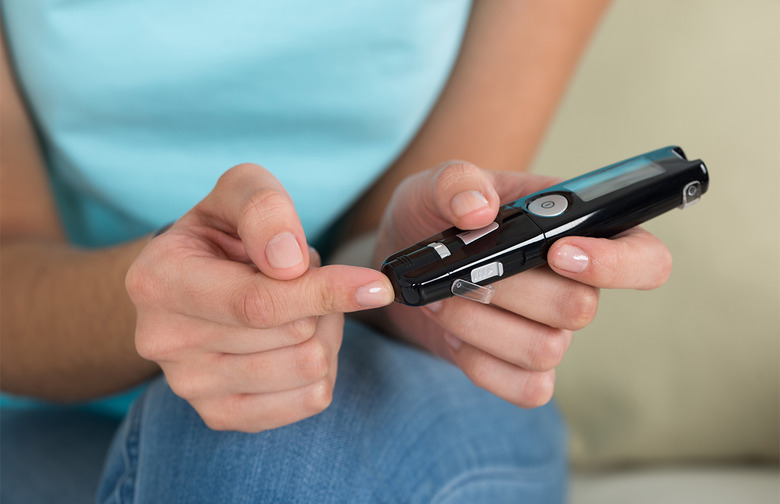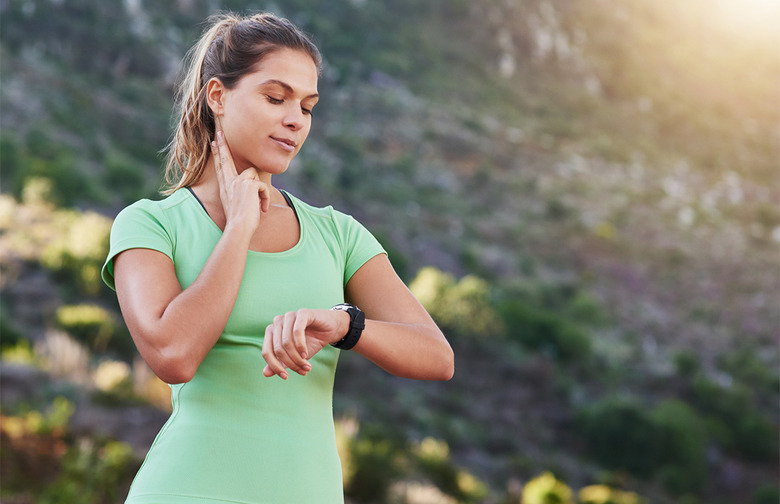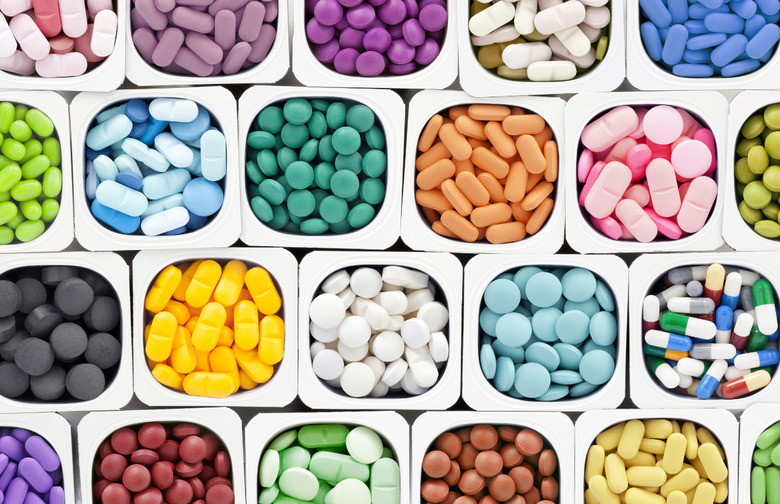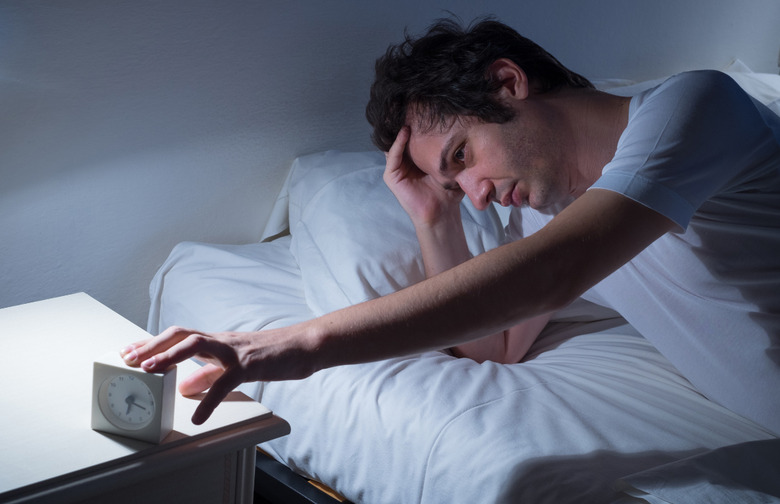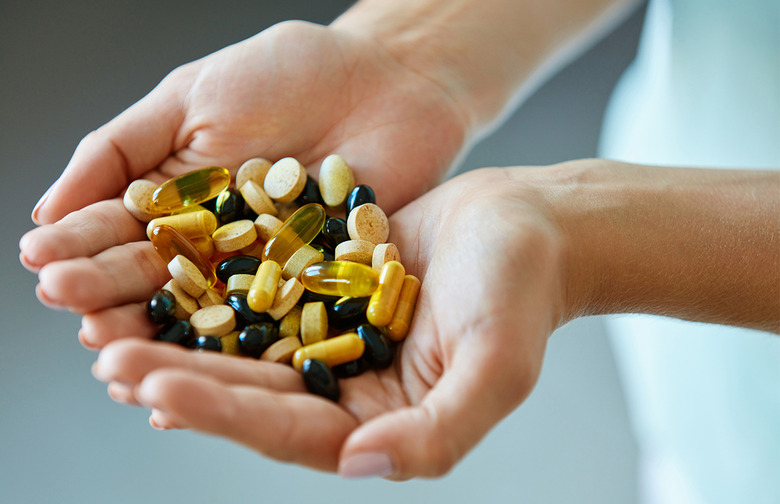Health Stats You Never Knew You Could Track On Your Phone Slideshow
It's honestly creepy how much your cell phone knows about you. It can listen to your conversations, remember your browser history, and report your location dating back months. Of course, there are some drawbacks to all this stored information. It's eerie to think that your phone can know you so insanely well, but if you know how to use your smartphone's tools right, there are some benefits to be gained from this somewhat unnerving database.
We don't advise that you track all of these health stats. The reality is that if you're a healthy, active human, your body already has natural mechanisms in place to track most of these items on its own. There are signs to look out for in the way you feel and the foods you crave that give insight into your health and dietary needs.
It's also far too easy to become obsessive and start to micromanage these statistics. If you track your nutrients, for example, it can be tempting to try to track them every day to achieve dietary "perfection." However, there is no perfect diet — and a diet where every day looks exactly the same isn't healthy at all! It would take a toll on your mental health, as well.
While closely monitoring these health statistics is not advised, it could be helpful to track them now and again to gain helpful information about your habits and how they correlate with your health. Here are some statistics we bet you didn't even know you could track with your smartphone.
Blood Pressure
Did you know that the American Heart Association's benchmark for what counts as a healthy blood pressure recently got lower? The time is nigh for monitoring your blood pressure and for making sure it doesn't ramp up too high. Keeping track on your phone can help you to know when it's time to cut back on some of the foods that could be sending your numbers through the roof.
Blood Sugar
Diabetes doesn't have to stop you from eating mac and cheese, but it does mean it's time to keep a close eye on your blood sugar. These numbers are hard to manage all on your own; armed with only your blood glucose monitor and a pen and paper, it's easy to lose track. There are dozens of quality apps available for assisting diabetics with keeping their blood sugar under control.
Body Temperature
The days of arbitrarily diagnosing a fever after feeling your forehead are over. Some phones have the incredible capability of estimating your body temperature using a separately purchased patch. Your phone then uses the data to track your temperature and predict the end of your fever. Then you can finally stop worrying and start feeding your cold or starving your fever... Or is it starving a cold and feeding a fever?
Caffeine Intake
Along with your nutrition and calorie intake, you can use the Health app on your phone to monitor your caffeine consumption. Coffee is the main source, but some other foods contain surprising amounts of caffeine, as well. The app collects all the data in one place to help you keep tabs on the compound that could be making your anxiety worse.
Flights of Stairs
We knew iPhones were tracking our steps, but did you know they're keeping track of your altitude, too? Every time you travel upwards the altitude of a flight of stairs and your phone senses your steps alongside the climb (sorry, no cheating with the elevator) it logs a flight ascended. Next time you take the escalator thinking, no one's counting, think again. Your phone totally is.
Heart Rate
They may be hurting Weight Watchers' business, but if you have a FitBit, you know how enlightening heart rate trackers can be. Your heart rate fluctuates based on your surroundings, sure — if you're excited, for example, it may start to flutter, or if you're being a couch potato it'll pulse at a steady, slow pace. But your heart rate also holds valuable insights about your overall health. A slower resting heart rate could mean you're in better physical shape, for example. Or a heart rate that spikes during exercise could mean a serious boost in your metabolism once you've finished your workout.
Hydration
Doctors recommend you drink eight full glasses of water every day, but that can be difficult to accomplish without keeping track. Drinking hydrating beverages is important to keep up your metabolism, fight aging, and prevent disease. By entering each glass in your phone, it can be easier to stay accountable for your hydration.
Medications
Juggling all the vitamins and supplements you need to be taking at certain times can be onerous and exhausting. Women have been setting birth control reminders as alarms on their phones for years — but there's a better (and more discreet) way. Apps are available to keep track of your medications for you. The app will send you notifications when it's time to take your pill.
Menstrual Cycle
If you're a woman and you aren't keeping track of your period each month, you might want to consider using this iPhone feature. Simply from the flow of your cycle, you can get to the bottom of nagging food cravings, hormonal fluctuations, and even the cause of your acne. The iPhone Health app can help you track your cycle, and there are hundreds of other menstruation calendar apps at your disposal as well.
Mindfulness
Meditation and mindfulness is the new "it" thing in health and wellness, and for good reason. Not only could it cure your chocolate addiction, but it also lowers stress levels, prevents over- and undereating, and is correlated with more healthful exercise practices. You can hold yourself to your intentions to live mindfully using a tracker on your iPhone's Health app. It's a tool you've had all along, without even knowing it — the tracker connects to meditation apps such as Headspace to keep tabs on how many times per week you're really taking time to unwind.
Mood
Wondering if the food you're eating has something to do with your unpredictable mood swings? Now there's a way to tell for sure. By tracking the ebb and flow of your mood, you can correlate your emotions to potential influencing factors — like, say, sugar intake or alcohol. There are foods that can boost your mood, too, that you could try adding to your diet.
Sexual Activity
Don't worry; your phone isn't trying to slut-shame you. Sexual activity can affect your physical and emotional health. By tracking when you're having sex in relation to the other health symptoms you have going on, you might be able to glean helpful information about your hormone levels, health statistics such as blood pressure and stress level, and more.
Sleep Quality
You might manage to get to bed at 10, but are you really getting a full night's sleep? You could be tossing and turning for hours or waking up throughout the night without even realizing you're doing it. Sleep trackers on your phone can listen for rustling and other disruptions to clue you in to the quality of your rest.
Symptoms
When your doctor asks you how you've been feeling, you say you're doing fine. No, you haven't felt any pain. It's not until later you remember that you definitely did feel pain, but just forgot.
You aren't trying to lie to your doctor — you just can't keep track of all the symptoms you feel. Your phone can, though. Whenever you feel a sign or a symptom you want to make note of, you can enter it into your phone on a symptom-checking app. Later, you can show the real-time results to your doctor instead of relying on memory.
Vitamins
Do you really need to be taking a multivitamin? It's possible you're eating enough vitamins and minerals in your diet already. With your phone's Nutrition app, you can count more than calories. Perhaps more important than your calorie intake are the nutrients you're getting from your diet. A low-calorie, nutrient-deprived diet is doing you no favors. The app keeps track of macronutrients like carbs and fat, micronutrients like vitamins, and even cholesterol, biotin, and other minor components that make a major difference in your health. Find out the healthy foods with enough nutrition to replace pricey vitamins here.
